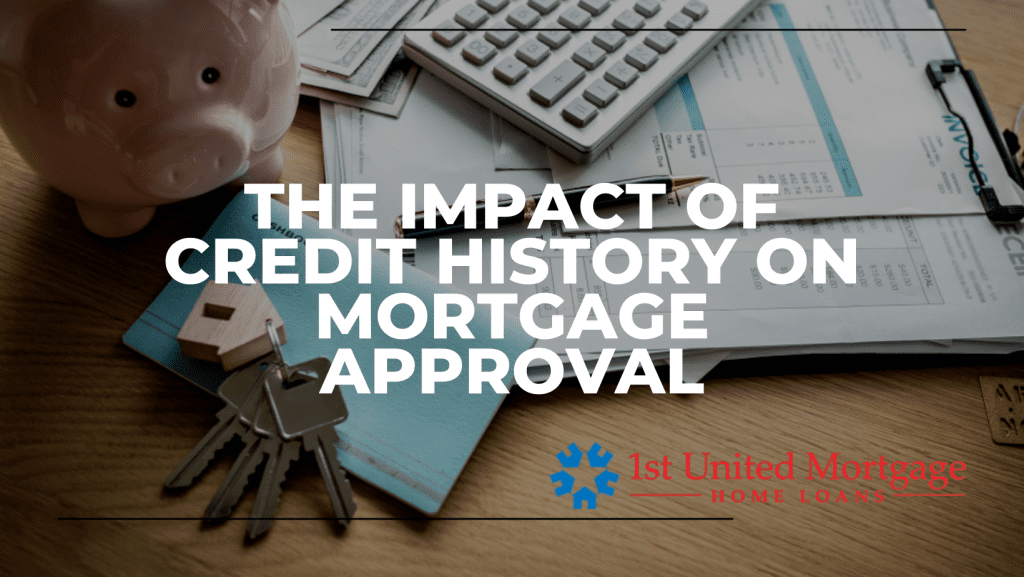
Owning a home is a significant milestone for many individuals and families. However, your credit history is pivotal in the approval process when securing a mortgage. In this guide, we will delve into how your credit score influences your journey to mortgage approval and provide practical steps to improve your credit score. Whether you’re dreaming of your first home or considering a refinance, understanding the impact of credit history is crucial.
Your Credit Score: A Key Player in Mortgage Approval
Your credit score is like a financial report card that reflects your borrowing behavior. It’s a three-digit number, typically ranging from 300 to 850, that provides lenders with insights into your creditworthiness. The higher your credit score, the more likely you will secure favorable loan terms, including lower interest rates.
Here’s how your credit score shapes your mortgage journey:
Favorable Loan Terms: A high credit score indicates responsible financial management, making lenders more willing to offer you lower interest rates. This reduces the overall cost of your mortgage and results in more affordable monthly payments.
Loan Amount and Down Payment: Your credit score can influence the loan amount your lender offers and the down payment requirements. A higher score often means access to larger loans with lower down payment demands.
Private Mortgage Insurance (PMI): With a lower credit score, you may be required to pay for private mortgage insurance (PMI). This additional cost can increase your monthly payments.
Credit Score Requirements for Different Mortgages
Different types of mortgages have varying credit score requirements. Here’s a breakdown of some common mortgage options and their associated credit score requirements:
Conventional Loans:
– Minimum Score: Generally 620
– Preferred Score: 740 or above for the best rates
FHA Loans (Federal Housing Administration):
– Minimum Score: As low as 500 with a 10% down payment or 580 with a 3.5% down payment
VA Loans (Department of Veterans Affairs):
– No Minimum Score Requirement, but many lenders look for a score of 620 or higher
USDA Loans (U.S. Department of Agriculture):
– Minimum Score: Typically 640
Jumbo Loans:
– Minimum Score: Generally 700, but some lenders may require 720 or higher
As evident, credit score requirements vary significantly across mortgage types. Government-backed loans, such as FHA, VA, and USDA loans, are more lenient in their credit score requirements, making homeownership more accessible to a broader range of borrowers.
The Impact of Low Credit Scores on Mortgages
A low credit score can significantly impact your mortgage experience in various ways:
Higher Interest Rates and Costs: Lenders often charge higher interest rates to borrowers with lower credit scores, resulting in increased monthly payments and a more substantial overall loan cost. This compensates for the perceived risk of lending to individuals with less-than-stellar credit histories.
Difficulty in Mortgage Approval: Securing a mortgage can be challenging with a low credit score. Lenders may be reluctant to approve loans for individuals with poor credit due to concerns about missed payments or defaults.
Limited Loan Options: Borrowers with low credit scores may find themselves limited to specific types of mortgages, such as FHA or other government-backed loans. Conventional loan products might be out of reach until they can improve their credit scores.
Navigating Mortgages With Less-Than-Perfect Credit
While a low credit score can present challenges, it doesn’t mean homeownership is out of reach. There are strategies to help individuals with less-than-perfect credit secure a mortgage or improve their credit scores for better loan terms.
Strategies to Strengthen Your Credit Score
1. Reducing Credit Utilization:
– Making more than the minimum payments on credit cards to lower credit utilization ratios.
– Setting up automatic payments for all loans to ensure timely payments.
2. Diversifying Credit Mix:
– Taking out small personal loans that can be repaid quickly to demonstrate responsible credit usage.
– Using secured credit cards while maintaining low balances to showcase responsible credit management.
3. Building Credit History:
– Opting for a credit-builder loan to establish consistent, timely payments and build a positive payment history.
4. Limiting New Credit Inquiries:
– Resisting the temptation to open new credit accounts, focusing on managing existing accounts responsibly.
5. Correcting Credit Report Errors:
– Regularly reviewing credit reports for inaccuracies and disputing errors to improve credit scores.
Other Mortgage Options for Buyers with Low Credit
If waiting to build up your credit score isn’t an option, several alternative routes to homeownership are available:
1. Government Assistance Programs:
– Some programs prioritize factors like income, employment history, and loan size over minimum credit score requirements. Examples include VA loans.
2. Subprime Lenders:
– While subprime lenders may work with low credit scores, they often charge higher interest rates, so borrowers should proceed cautiously.
3. Co-Signing Applications:
– Co-signers with good credit can help secure loans and favorable rates. However, they share responsibility for the loan and its repayment.
Take Control of Your Mortgage Journey
Your credit score is a critical factor in obtaining a mortgage. Whether you’re looking to buy your first home, refinance, or explore mortgage options, understanding the impact of credit history is essential. By taking proactive steps to improve your credit score or exploring alternative mortgage options, you can move closer to homeownership.
Don’t let your credit score stand in the way of your homeownership dreams. Contact Tax Law Advocates today at 855-612-7777 or visit our website to discover how our expertise can assist you in navigating the mortgage approval process. We are committed to helping individuals and families achieve their homeownership goals by providing tailored guidance and solutions. Your path to homeownership begins with Tax Law Advocates.
